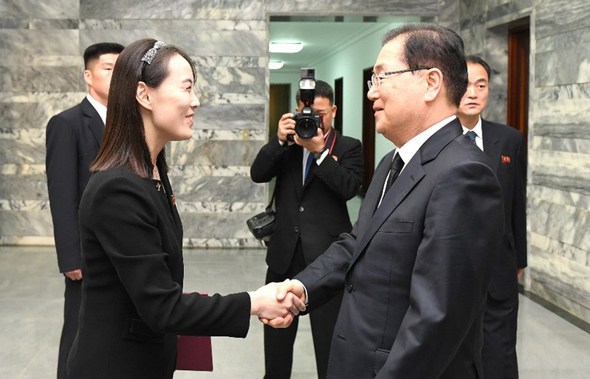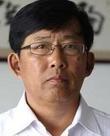 |
|
Kim Yo-jong (left), first vice director of the Propaganda and Agitation Department of the Workers’ Party of Korea (WPK), shakes hands with Blue House National Security Office Director Chung Eui-yong at Panmunjom on June 12. (provided by the Unification Ministry)
|
China’s development may have not led to democratization, but it changed society for the better
When China ended the Cultural Revolution some forty years ago, the US hoped that China would move toward reform and opening. This was grounded in expectations of a “peaceful transition,” as it was called — the “democratization” of China through economic development. But despite achieving remarkable economic development, China hasn’t moved toward the “democratic society” desired by the US. Some in the US claim that China is reverting to a dictatorship. In the end, they say, US support of China’s reform and opening has created a rival to threaten American hegemony and a return to the past. Similar logic is employed against North Korea. Supporting the economic development of a nuclear-armed North Korea, the argument goes, is like putting wings on a tiger. It’s true that, during the initial stage of reform and opening, the US provided China with both physical and moral support. The US believed that economic development would transplant American-style “democracy” into China. But when China surpassed Japan to become the world’s second-largest economic power without turning into a democracy, the US turned to a policy of containment. Following the “pivot to Asia” under the Obama administration and the “Indo-Pacific strategy” under the Trump administration, this reached its apex with the trade war between China and the US. Does that mean that China’s economic development hasn’t brought development beyond the economy? Looking back at the “three-year catastrophe” in the late 1950s, when tens of millions of Chinese starved to death and the “10 years of chaos” known as the Cultural Revolution, Chinese society has undergone enormous upheavals. Historically speaking, the Chinese people have never enjoyed either the prosperity or the limited democracy and freedom of the present day. Over the course of 38 years, China’s gross domestic product (GDP) has increased by a factor of 45, from US$301.5 billion in 1980 to US$13.6 trillion last year. Needless to say, such economic growth has been accompanied by remarkable changes in the areas of society, culture, education, and human rights. Last year, North Korea unveiled the new strategic line of economic development. North Korea is a place where the party line determines everything. All the resources of the state are invested in this strategic line. North Korea faces a horrible struggle under unprecedented sanctions. If the North Korean economy grew by a factor of 45 as China’s did, what kind of country would it become? This would mean nothing less than a total transformation. During that process, North Korea’s simple social system would become more complex. Rapid social changes would diversify the alignment of interests, aggravate the gap between rich and poor, and also alter the social order. Social competition would intensify, leading to the movement of talented workers and a generational transition. Elements of the market economy would expand, values would shift, and self-awareness would increase. North Korea would no longer be the North Korea that we know today. Even if North Korea still had nuclear weapons, those cataclysmic changes could weaken or end its obsession with nuclear weapons. But some in South Korea and the US think that lifting sanctions on North Korea before it abandons its nuclear weapons and allowing its economy to develop would backfire and turn the North into a much greater threat than it is today. They think that their only option is to maintain sanctions and pressure until the North is brought to its knees. They disregard the fact that economic development has an enormous knock-on effect that could transform the North. But perhaps they’re less interested in seeing a transformed North Korea than one that has capitulated. On top of that, they talk about the Chinese experience as a mistake to be avoided, as if China’s development were a disaster. Which China does the world prefer — the China of today, or the China of four decades ago?
 |
|
Jin Jingyi, professor at Peking University
|







